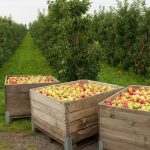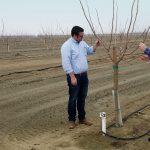Jeff Hillberg has been with AgIS Capital since 2016. He previously served as Chief Financial Officer at Hancock Farmland Services. Based in Turlock, California, Jeff and his team oversee the ground-level management of clients’ asset for AgIS Capital, LLC.
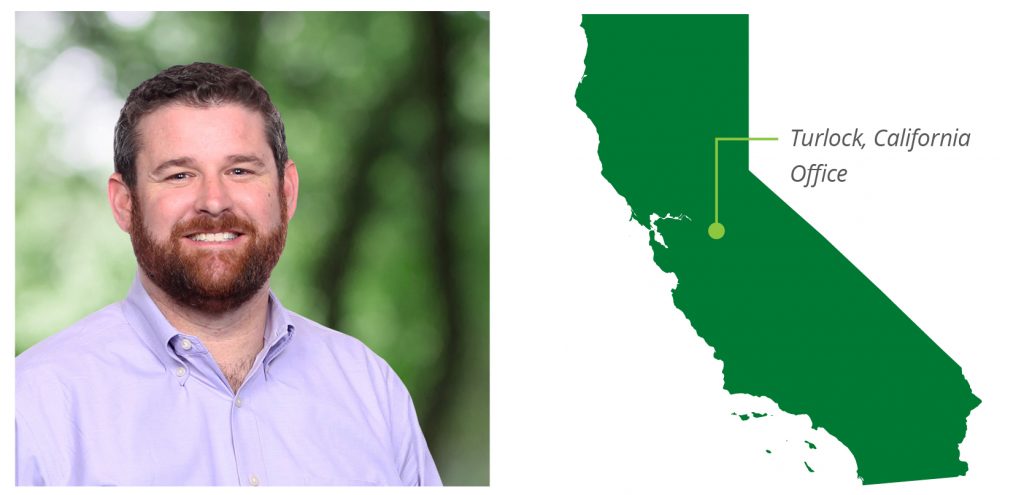
Jeff, how did you get into farming and the farmland management business?
I grew up in the Central Valley of California and I have been around agriculture my entire life because my family farmed. I studied political science at the University of California, Santa Barbara and then earned a master’s in finance at Indiana University. However, I continued to feel the pull of the land so I headed back to Turlock and began looking for opportunities in agriculture after I finished my education. I began my career as an analyst with Farmland Management Services (FMS), which had an office in Turlock. It was an eye-opening experience. I had spent much of my childhood on my grandparents’ farm and then worked after college in the accounting department of a small poultry company. After a few weeks on the job at FMS, I realized that the farmland investment business was far more sophisticated and interesting than I had anticipated. I also realized it was a growth area — one that would continue to expand. I spent almost seven years with FMS learning the business and then joined its successor company, Hancock Farmland Services. I came over to AgIS Capital in late 2016 because I really wanted to be involved in an entrepreneurial growth venture.
You spend a lot of time managing assets in California for your clients. What three things about investing in the state are important for investors and others to understand?
First, California’s farms and farm processors lead the world in producing a variety of high quality, high demand commodities. For those reasons, it is a place in which you need to have significant exposure if your strategy calls for investing in permanent crop assets. That said, water is the number one issue for those involved in agriculture in California. Water is a scarce commodity here and it needs to be shared by our urban populations and those in the rural parts of the state where agriculture is the dominant industry. This makes water an issue with a lot of political, social and legal complexities — all of which impact the viability of our people and our state’s economy. Understanding these complexities and being sensitive to the competing interests of all those concerned about water access and availability is important if you plan to invest in agriculture in California.
With respect to water rights, farm owners and operators in California can have two different types of water associated with their holdings — surface water and ground water. Surface water is generally supplied by a local irrigation district, which is often run or sponsored by the state, county or a federal water authority. Surface water also can come from riparian or appropriative water rights, which generally grant one the right to divert certain amounts of water from rivers and streams. The second type of water, ground water, or water pumped from underground aquifers, was largely unregulated in most of the state until 2014. That year, California passed the Sustainable Groundwater Management Act, which requires that groundwater extraction activities be sustainable by the year 2040. One of the biggest challenges in understanding water rights and water issues in California is that neighboring farm properties may have substantially different water resource rights associated with them than does an asset you may own. As a result, it is very important to undertake extensive due diligence about a farmland property’s actual water rights profile prior to acquisition because it is always a key determinant in how one should underwrite and ultimately value a property.
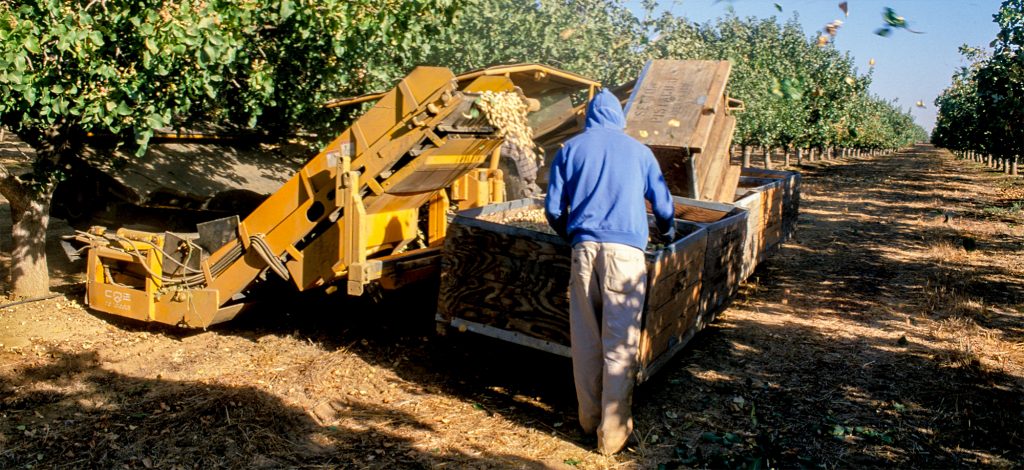
Another major area of focus with farming, not just here in California, but in virtually any area where seasonal workers are part of the management strategy, is farm labor. It is very important to have a full and complete understanding of farm labor laws and the associated compliance requirements to ensure that you are meeting the government’s standards for worker safety and fair treatment of workers. These laws and standards are constantly evolving and staying abreast of these changes is critically important. We work closely with a number of farm labor contractors to ensure that they are being scrupulously compliant and that the laws are being followed in a manner that is consistent with both their spirit and actual intent. In the end, this isn’t just about complying with the law. We also believe it is in our clients’ best interest that we be viewed as a responsible farm labor consumer because it helps us attract and maintain a motivated and effective workforce.
The third issue investors need to know about is actually related to the two I’ve just mentioned. It is the importance of embracing and complying with Sustainability standards. That means employing policies and procedures that enhance the value of our investors’ assets and that protect the world and the communities in which we live and work. The public grants us a notional license to operate based on our actions and behaviors — and specifically whether those actions and behaviors suggest we are good and responsible land steward and are otherwise a concerned and engaged corporate citizen. This is not just a “check the box” exercise. It is not about marketing and public relations. You have to demonstrate these values and commitments by how you manage your farms, by how you treat your neighbors and other stakeholders, and by how open and transparent you are willing to be about what you are doing and why. Here at AgIS, we are a young company and we are still learning where and how to engage on a whole variety of sustainability-related issues, but our goal is to use our sustainability efforts to demonstrate a willingness to be accountable — both to our investors and to others who are impacted by what we do on their behalf.
Can you talk a little about sustainability initiatives you and your team are currently implementing?
Sustainability issues impact virtually every aspect of our business and especially what we do on the ground for clients. They encompass everything from ensuring the laborers who are working on our clients’ assets are being treated fairly and that we are complying with labor laws — to protecting wildlife habitat — restoring forestlands and wetlands — and, looking for ways to be more efficient with farm inputs, especially with our use of water, electricity, fertilizer and herbicides. One of the sustainability-related projects that I am most excited about currently is a large solar project we are planning on a pistachio and almond farm in Kings County, California. The project should help us sustainably offset approximately 80 percent of the asset’s electricity usage. Another project that I find interesting is a reforestation and streambed remediation project in Lake County, California. This is in an area that was badly burned by a wildfire a few years ago and the work we are doing is going to help restore that ecosystem.
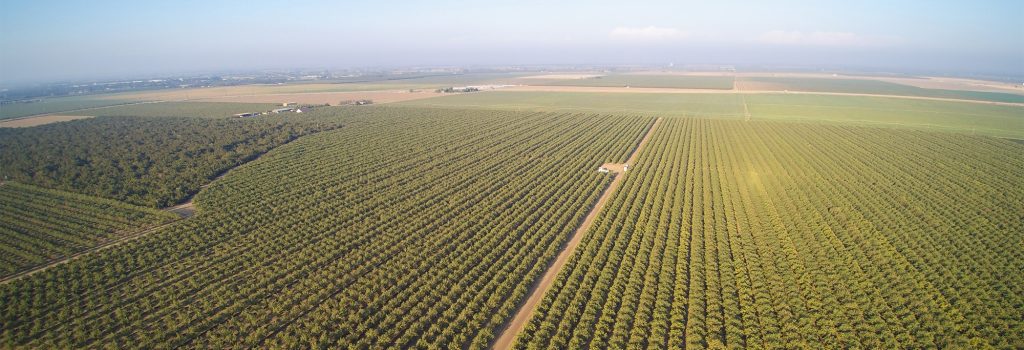
What does your typical day look like in California?
There is no such thing as a typical day for us. We spend about half of our time in the office and the other half out in the field supervising farm operations. When I’m in the field, I’m working with tenants on capital projects, attending regulatory meetings and engaging with other members of the AgIS Property Management team to discuss and strategize about the operation of clients’ assets. It is all really hands-on and I love that part of my job. I am also very involved with the implementation of the Sustainable Groundwater Management Act, which means I work closely with the regulatory organizations where our properties are located to stay abreast of current state laws and regulations. Finally, another interesting part of my job is helping to source and evaluate prospective asset acquisitions. I like working side-by-side with our Acquisitions Team. There is nothing like being able to “kick the tires” of an asset you might ultimately be asked to manage. It gets you thinking creatively about what you can do to make an asset perform better and that’s something I find very interesting.
Last question… How do you see the future for permanent crop investing?
Each permanent crop commodity type will surely have its own unique challenges and opportunities in the future. Overall, however, we think returns will continue to be positive for the long term. As the world continues to get wealthier and as consumers focus more and more attention on eating healthy foods that are made from high quality, sustainably-grown ingredients, permanent crops will be a primary area of focus. Ultimately, that’s the opportunity upon which we at AgIS are trying to position our investors to capitalize.
…And how and are you doing that?
I think we are trying to do it by buying high quality farm assets for our investors and by managing them with discipline at an investment level. Here on the ground where I live and work, I think we at AgIS Property Management have a unique ability to flexibly integrate strategic asset management with investment discipline and this positions us well to both safeguard our clients’ assets and to make those assets perform to their optimal potential. Because of our size, our focus, and our entrepreneurial orientation, we are nimble and creative and that allows us to try new things — to take on special projects and challenges — and to work to enhance returns in ways other firms may not. One of the things I enjoy most about my job is bringing clients and prospective clients out on the ground and actually showing them the projects we do to create and preserve value. I think it is one of the strategic advantages that really differentiates us.



